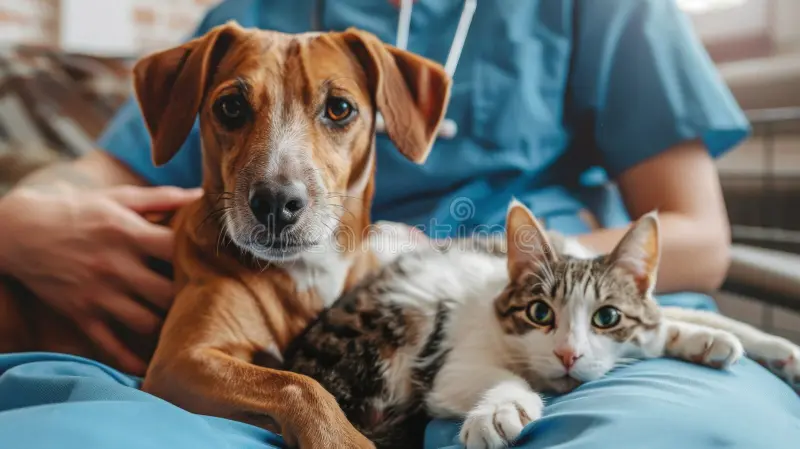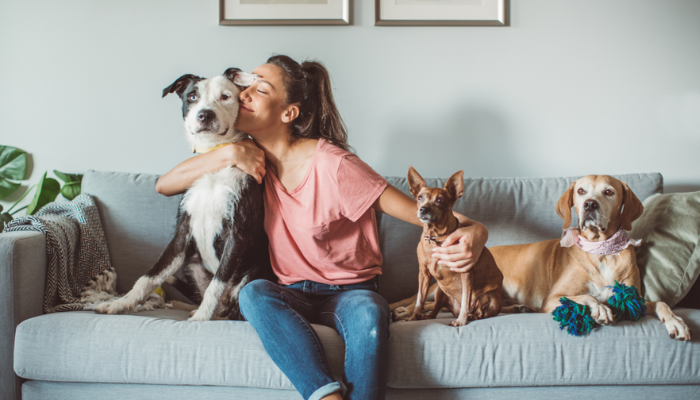Being a responsible pet parent means committing to the lifelong health and happiness of your furry friend. Whether you have a playful pup or a cuddly cat, here are ten essential pet care tips to ensure they thrive year after year.
1. Regular Veterinary Visits
Why Regular Checkups Matter
- Pets have shorter lifespans, making frequent vet visits crucial.
- Helps detect and prevent potential health issues early.
- Young pets require more frequent visits for vaccinations and health monitoring.
How to Make Vet Visits Stress-Free
- Familiarize pets with car rides and carriers.
- Use positive reinforcement and treats.
- Choose a vet who makes your pet feel comfortable.
2. Keep Up with Vaccinations
The Importance of Immunization
- Protects pets from serious illnesses like rabies, distemper, and feline leukemia.
- Ensures long-term pet care and disease prevention.
- Some vaccines require booster shots throughout a pet’s life.
Recommended Vaccination Schedule
- Puppies and kittens need vaccinations early on.
- Adult pets require regular boosters.
- Consult your veterinarian for a personalized vaccination plan.
3. Secure Proper Identification
Why Identification is Important
- Helps lost pets reunite with their owners.
- Essential for pets prone to running away or escaping.
Forms of Identification
- Collar and ID Tag: Displays contact information.
- Microchipping: A permanent, scannable ID stored under the pet’s skin.
- Updated Contact Information: Keep details current in case of address or phone number changes.

4. Spaying and Neutering
Health and Behavioral Benefits
- Reduces the risk of cancers and infections.
- Prevents aggressive behavior and roaming.
- Controls the pet population and prevents unwanted litters.
What to Expect
- A simple surgery that requires general anesthesia.
- Typically, pets stay overnight for monitoring and recovery.
- Consult a vet for the best time to schedule the procedure.
5. Provide Nutritious Food and Clean Water
Choosing the Right Diet
- Ensure a balance of proteins, fats, carbohydrates, and fiber.
- Choose age-appropriate food (puppy, adult, senior).
- Speak with your vet about dietary needs based on health conditions.
Hydration is Key
- Provide fresh, clean water at all times.
- Monitor water intake to ensure proper hydration.
6. Maintain Grooming and Hygiene
Basic Grooming Needs
- Brush fur regularly to prevent matting and excessive shedding.
- Trim nails to prevent pain and injury.
- Bathe pets occasionally using pet-friendly shampoo.
Dental Care
- Brush teeth or use dental treats to prevent gum disease.
- Regular vet dental checkups are recommended.
7. Create a Comfortable Living Space
Providing a Safe and Cozy Home
- Ensure a soft, clean bed for resting.
- Clean litter boxes and sleeping areas frequently.
- Provide access to safe indoor and outdoor spaces.
Pet-Proofing Your Home
- Secure loose wires, small objects, and toxic plants.
- Check for hazards like open windows or gaps in fences.
8. Training and Socialization
Importance of Training
- Teaches pets good behavior and discipline.
- Strengthens the bond between pets and owners.
- A well-trained pet is a happy and confident one.
Key Training Tips
- Start with basic commands like sit, stay, and come.
- Use positive reinforcement techniques.
- Socialize pets with different people and other animals early on.
9. Follow Dog Park and Outdoor Safety Guidelines
Dog Park Etiquette
- Always supervise your dog’s interactions.
- Bring your own toys but avoid bringing food.
- Ensure your dog is up to date on vaccinations before visits.
Outdoor Safety Measures
- Keep pets on a leash in unfamiliar areas.
- Provide shade and water during hot weather.
- Check for ticks and pests after outdoor adventures.
10. Choose Safe and Engaging Toys
Selecting the Right Toys
- Ensure toys are appropriate for your pet’s size and chewing habits.
- Avoid small parts that could be choking hazards.
- Rotate toys to keep playtime exciting.
DIY Pet Toys for Extra Fun
- Use household items like rope knots or cardboard boxes.
- Make interactive toys using treats and puzzle feeders.

Conclusion:
Being a responsible pet parent is a rewarding journey filled with unconditional love and companionship. By following these essential pet care tips, you ensure your furry friend lives a happy, healthy, and fulfilling life. Prioritizing pet care not only enhances their quality of life but also strengthens the bond you share with your beloved pet. Make pet care a daily priority and enjoy the joys of having a loyal companion by your side.
Also Read: 18 Effective Tips to Lose Belly Fat (Evidence Based)
Frequently asked questions: FAQ
What are some basic tips for caring a pet?
- Take time to exercise them. Without physical exercise, pets get out of shape, just like we do.
- Take time to provide mental exercise, too. …
- Provide good dental care at home. …
- Take your pet to the veterinarian once or twice a year. …
- Finally, have fun with your pet!
What are the 4 basic needs of a pet?
Companion animals, such as cats and dogs, rely on us to take care of them and their basic needs, including: water, food, shelter and protection from weather.
How to care for a pet step by step?
The Basic Necessities of Proper Pet Care
- Pets need healthy food.
- Give your pets 24/7 access to fresh drinking water.
- Proper pet care includes providing a safe, cozy shelter.
- Pets need to go to the bathroom regularly.
- Make sure that your pet gets regular exercise.
- Pets require doctor visits and healthy habits.
What is basic pet care?
PETS NEED REGULAR VETERINARY CARE.
Just as your child needs regular check-ups, your pet does, too! Puppies and kittens should be examined every 2 weeks during the initial vaccination series to en- sure proper growth, diet, parasite control, and behavior.
How do I prepare for my first pet?
Preparing Your Home for a New Pet
- Pet-proofing: Remove toxic plants, secure loose wires, and ensure harmful substances like cleaning products are safely out of reach. …
- Comfortable Space: Set up a cozy area with essentials like a bed, food and water bowls, and toys to help your pet feel at home.
How to feed a dog?
Your veterinarian can calculate the exact amount to feed. You can feed your dog one or two times a day. It’s best to do it twice daily at 8-12 hour intervals. If you’re doing it this way, split the suggested amount found on the bag or you’ll feed it double what it needs.

